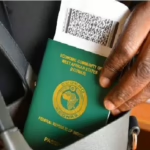Following the announcement of Canada about restrictions on international study permits for 2024, Nova Scotia has become the latest Canadian province to declare how its quota of study permit applications for 2024 will be distributed across sectors and institutions
This was disclosed after British Columbia and Ontario shared the quota of study permit applications for 2024, which will be distributed across sectors and institutions
According to the ICEF monitor, this is because each Canadian province has been allotted a different share of the total national volume of study permit applications and because each provincial government then decides how to distribute its allocation across its educational sectors and institutions.
As in Ontario, private institutions and language schools would be adversely affected by the distribution arrangement, but some public universities will also see significant reductions in study permit applications.
All Canadian provinces have now distributed their allocation of study permit applications for 2024, and all are now also issuing provincial attestation letters (PALs).
This signifies the effect that study permit processing has now resumed for cap-affected students in all provinces.
The information revealed that the elimination of Post-Graduation Work Permit (PGWP) rights for students enrolling in programmes delivered through Ontario Public-College Private Partnerships will now occur on 15 May 2024 – a few months earlier than initially announced.
With the announcement, Nova Scotia received an allocation of 12,900 applications for 2024, which is about 7,000 fewer than the total number of applications submitted in 2023.
Of that total, 11,565 (90%) will go to the province’s 10 universities and Nova Scotia Community College. And in the remainder, 710 are reserved “for a dozen private career colleges” and 526 are slotted for nine language schools. Another 99 application spaces are left over “to respond to unexpected circumstances and new programs.”
It was gathered that while universities fared the best overall in Nova Scotia’s disbursement of applications, some universities are facing a more difficult year than others as the province also allocated applications on an institution-by-institution level.
CBC News reports that “Cape Breton University (CBU) is facing the biggest hit, a 52 per cent decrease to 5,086 applications … Mount Saint Vincent University (MSVU) will have access to 44 per cent fewer, for a total of 860, and Université Ste-Anne faces a 34 per cent cut to 962.”
David Dingwall, CBU’s president, told CBC News that CBU “is facing a major financial problem unless it can convince immigration officials to grant more prospective students the permits they apply for” given that the university’s conversion rate is only 30%:
“If the conversion rate doesn’t go up, it’ll be a big hit. If the conversion rate goes up in our favour, we should be OK. But you can’t take that as a given.”
Speaking widely about the distribution of applications across Nova Scotian institutions, the province’s Advanced Education Minister, Brian Wong, said: “We’ve worked hard trying to make sure that 12,900 number is allocated fairly amongst the institutions. We also wanted to make sure that schools that were ready for some growth got the opportunity to be able to grow.”
That thinking seems to have driven the decision to substantially increase some universities’ application quota. For example, Halifax’s Dalhousie University has been accorded 1,180 applications (+70% compared with 2023/24). St. Francis Xavier University also received a 19% top-up and Acadia University got a 14% boost.
Wong said that he “hopes” all schools will continue to break through although many may see sharp decreases in their revenues if international student numbers (and tuition) decline.
He said it would be important for schools to recruit good candidates to raise their conversion rates. Saltwire.com reports that for the 2023/24 academic year, Nova Scotian institutions submitted 19,000 study permit applications, only 40% of which were approved. The national approval average was 60% for that year.
As of this writing, the Nova Scotia government is not planning to provide financial assistance to institutions that may face operational crises if their international student enrolments fall. But opposition party leader Zach Churchill said that might have to change: “The universities only get their money from government or students so the money is going to have to come from somewhere, and losing international students will certainly have a very serious financial impact on these institutions.”
While details and methods vary, all Canadian provinces have now distributed their allocation of study permit applications for 2024, and all are now also issuing provincial attestation letters (PALs). This means that study permit processing has now resumed for cap-affected students in all provinces.
IRCC has stated previously that it would allocate roughly 606,000 study permit applications across all provinces and territories, with the goal of granting about 360,000 new study permits to commencing students in 2024 (not including those enrolled in K-12 or master’s/doctoral programmes).
Based on provincial disclosures to date, we understand the following allocations are in place for new study permit applications in 2024.
Credit: Vanguard











Leave a Reply